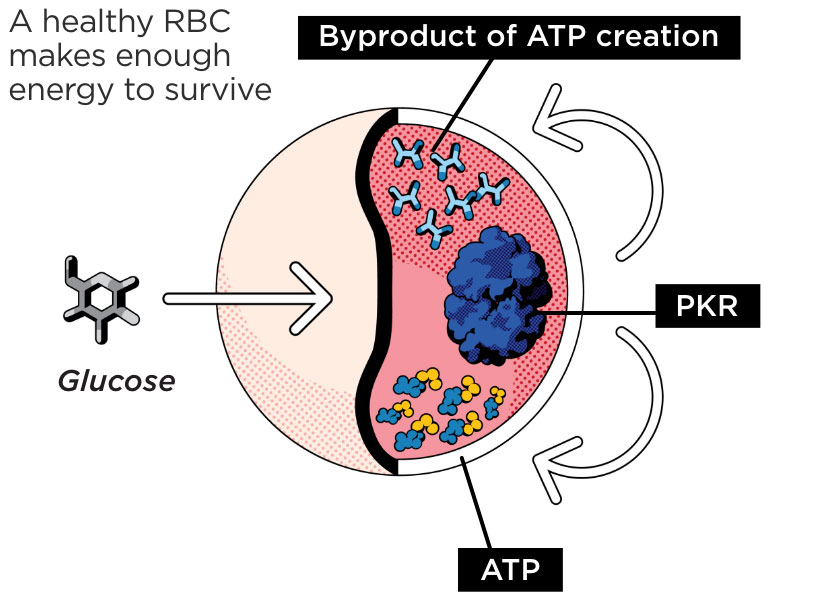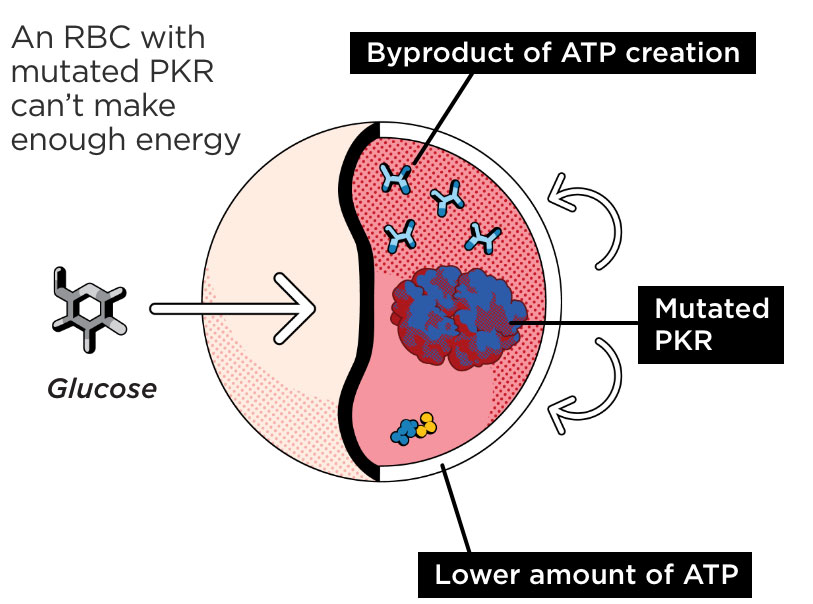What is PK Deficiency?
PK deficiency is a rare, inherited enzyme deficiency that affects red blood cells (RBCs)
PK deficiency causes hemolytic anemia. Hemolytic anemia happens when RBCs are broken down faster than they are made.
Explore the key terms used on this page
Learn about the role of rBCs and what it means to have PK deficiency
Healthy RBC

- After healthy RBCs are produced, they travel through the lungs, and oxygen binds to a molecule in the cells called hemoglobin
- The RBCs then transport oxygen to the rest of the body
- Healthy RBCs have enough ATP, or energy, made by the pyruvate kinase R (PKR) enzyme to survive this trip throughout the body
- Each RBC lives for about 120 days before being broken down and removed from circulation
PK-deficient RBC

- RBCs that do not have enough PK, or that do not have properly working PK, have less ATP, so they die more quickly
- The low levels of ATP can cause chronic hemolytic anemia (low RBC counts or low levels of hemoglobin)
Red blood cells (RBCs or erythrocytes): Cells that carry oxygen throughout the body
Anemia: A condition in which the blood has lower-than-normal levels of RBCs or hemoglobin
Hemoglobin: A protein that helps RBCs carry the oxygen your body needs
Hemolytic anemia: A type of anemia that is caused by the early breakdown of RBCs in the bloodstream or by the spleen
Hemolysis: The breakdown of RBCs, which leads to the release of hemoglobin into the blood and production of bilirubin
Chronic: Lasting a long time
Catalyze: To increase the rate of a chemical reaction
Enzyme: A protein that catalyzes chemical reactions that occur inside the body
Gene mutation: A permanent change in the DNA sequence of a gene, altering the gene’s ability to make a protein and causing the protein to stop working properly
Deficiency: A shortage of something
PKR (pyruvate kinase in RBC): The pyruvate kinase enzyme
Glycolysis: The process of RBCs converting glucose (sugar) into pyruvate and ATP
ATP: The primary source of energy for cells
DID YOU KNOW?
While healthy RBCs typically last 120 days, a PK-deficient RBC doesn’t have as much energy, so it may only last a few days to weeks.
The MyPKD mobile web app is available to help you feel more in control of your PK deficiency
MAKE AN ACCOUNTThere’s more to know about PK deficiency
Gathering information can help you prepare for discussions with your doctor
Discover the causes